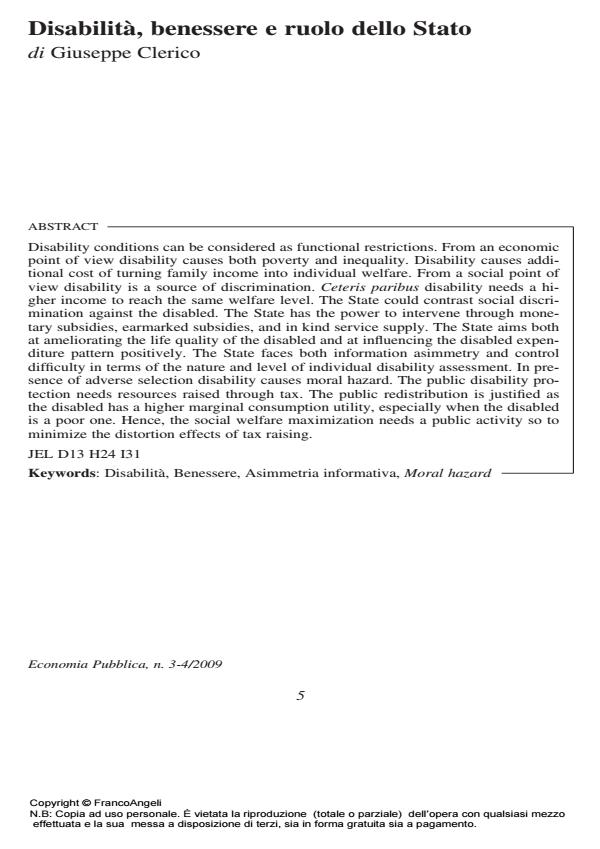Disabilità, benessere e ruolo dello Stato
Journal title ECONOMIA PUBBLICA
Author/s Giuseppe Clerico
Publishing Year 2010 Issue 2009/3-4
Language Italian Pages 24 P. 5-28 File size 984 KB
DOI 10.3280/EP2009-003001
DOI is like a bar code for intellectual property: to have more infomation
click here
Below, you can see the article first page
If you want to buy this article in PDF format, you can do it, following the instructions to buy download credits

FrancoAngeli is member of Publishers International Linking Association, Inc (PILA), a not-for-profit association which run the CrossRef service enabling links to and from online scholarly content.
Disability conditions can be considered as functional restrictions. From an economic point of view disability causes both poverty and inequality. Disability causes additional cost of turning family income into individual welfare. From a social point of view disability is a source of discrimination. Ceteris paribus disability needs a higher income to reach the same welfare level. The State could contrast social discrimination against the disabled. The State has the power to intervene through monetary subsidies, earmarked subsidies, and in kind service supply. The State aims both at ameliorating the life quality of the disabled and at influencing the disabled expenditure pattern positively. The State faces both information asimmetry and control difficulty in terms of the nature and level of individual disability assessment. In presence of adverse selection disability causes moral hazard. The public disability protection needs resources raised through tax. The public redistribution is justified as the disabled has a higher marginal consumption utility, especially when the disabled is a poor one. Hence, the social welfare maximization needs a public activity so to minimize the distortion effects of tax raising.
Keywords: Disabilità, Benessere, Asimmetria informativa, Moral hazard
Jel codes: D13 H24 I31
Giuseppe Clerico, Disabilità, benessere e ruolo dello Stato in "ECONOMIA PUBBLICA " 3-4/2009, pp 5-28, DOI: 10.3280/EP2009-003001